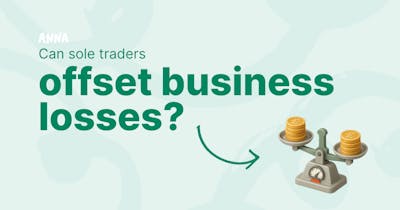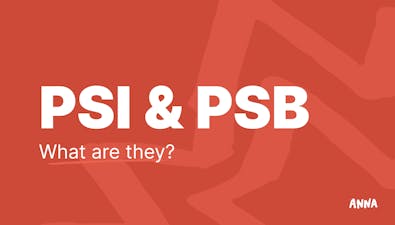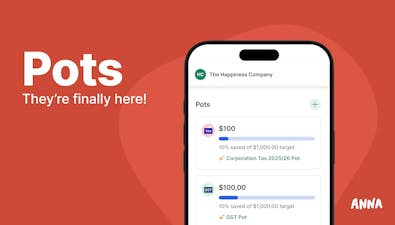
8 Tips to Start an Online Business in Australia [2025 Guide]

Discover how to start an online business in Australia, learn about legal requirements, and choose the right business structure for success.
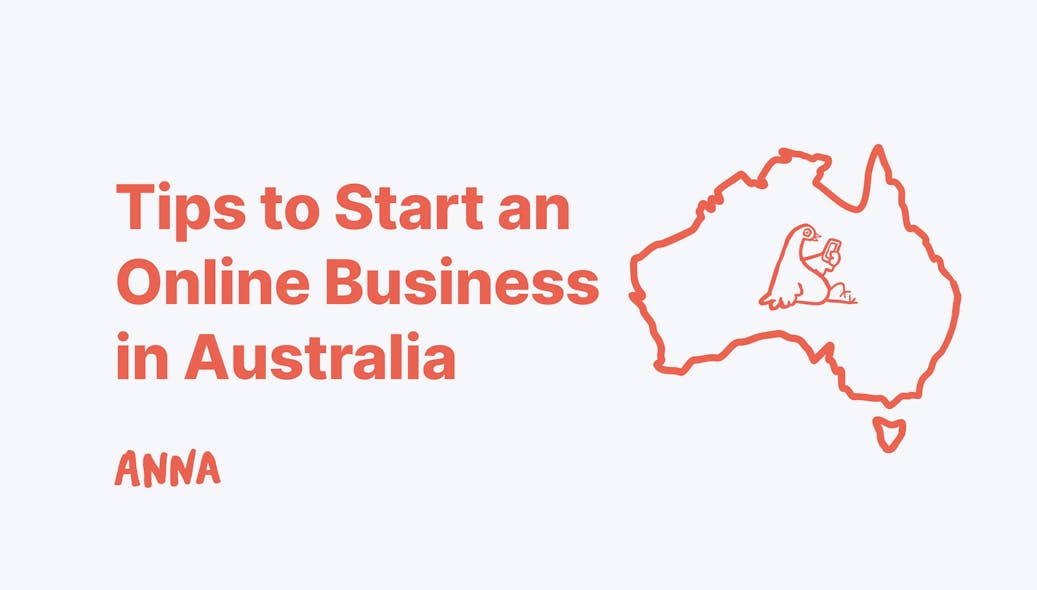
Are you feeling the strain of Australia's increasing living expenses? Many are now turning to online shopping to make their money go further.
The ease of comparing prices and products from the comfort of home has become a saver for budget-conscious consumers.
So, if you want to start an online business, now is the time!
As of 2024, Australia had 93,860 online shopping businesses, a 12.5% increase from the previous year. Those are impressive numbers, but how can you make your business stand out and grow above others?
That's an interesting question, and we have all the answers!
Follow our 8 tips on how to start an online business in Australia and carve out your niche successfully!
What Is An Online Business?
An online business, also known as an e-business or e-commerce business, uses the Internet to sell products or offer services to people worldwide.
This can include:
- Selling physical items on a website,
- Providing digital services,
- Running a profitable blog, or
- Offering online consulting and coaching.
What sets online businesses apart is that all their operations, from attracting customers to completing sales, happen digitally.
Advantages of Starting an Online Business
⚡ Lower Initial Investment: Online businesses typically need less capital than traditional brick-and-mortar setups. Depending on the business you are starting, you may need as little as 100 dollars for a website. Costs that are related to physical store rent, utilities, and inventory are minimized or avoided.
⚡ Global Reach: The Internet allows you to reach customers anywhere in the world, thus expanding the potential market far beyond local boundaries.
⚡ Flexible Working Hours: Running an online business offers flexibility, enabling you to set your preferred schedule and work from anywhere.
⚡ Scalability: You can grow and expand your business with relative ease, often with fewer resources, than you would scaling a physical location.
⚡ Access to Data: Using different tools, you can easily access valuable customer data and analytics and use them to improve marketing strategies and make informed decisions.
⚡ Environmental Benefits: Operating online reduces the need for physical materials and commuting, contributing to a lower carbon footprint.
8 Steps to Start an Online Business
Are you dreaming of building a business that stands the test of time? Consider setting up your own eCommerce store – a venture that offers flexibility and scalability.
With third-party logistics providers, managing your store from anywhere becomes a breeze.
Or, if you just want a simple side hustle, you can try affiliate marketing.
Anyhow, the first step is to decide on a business idea 👇
1. Research Online Business Ideas
To succeed, you don't just need an idea – but the one that generates revenue. Here are some popular online business models:
⚡ Sell Products Online: Platforms like Shopify, WooCommerce, and Etsy make setting up an online store easy while reaching a global audience.
⚡ Try Dropshipping: Dropshipping allows you to sell products without holding inventory. You promote products on your website, and when a customer makes a purchase, the supplier ships the product directly to them.
⚡ Sell Courses: Platforms like Udemy, Teachable, and Coursera allow you to host and sell your courses if you have expertise in a particular field.
⚡ Start a Blog and Become an Affiliate: Affiliate marketing is when you promote other companies' products and earn a commission on sales through referral links. This model requires minimal upfront investment and can be integrated into a blog or social media platform. You can also use a referral program template to streamline setup and track performance effectively
⚡ Create a SaaS Product: Developing software that users pay to access can provide recurring revenue and scalability.
⚡ Offer Services: If you have a skill or expertise, you can offer consulting or freelancing services online. Platforms like Upwork, Fiverr, and Freelancer connect you with clients seeking various services.
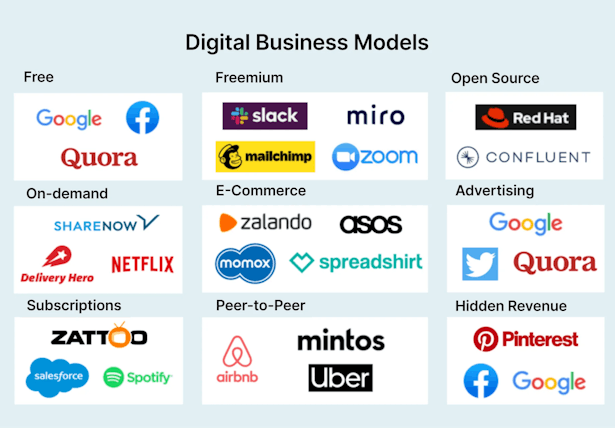
2. Choose a Niche That Works
The right niche is important for standing out in the competitive online marketplace. The best niches often stem from personal hobbies and passions where demand is unmet.
But that doesn't mean you can offer everyday products, too:
1. Commoditized Products: These are mass-market products that cater to everyday needs, such as:
- Groceries: Including food items, grains, poultry, and dairy products.
- Personal Care: Like toiletries, cleaning supplies, and hygiene products.
2. Niche Products: Serve specific customer segments based on unique needs or preferences, such as:
- Offering organic produce, snacks, and specialty items.
- Products promoting eco-friendly living, like reusable bags and bamboo utensils.
- Gadgets for left-handed people.
- Custom designs, for example, a hoodie with your dog's face on it.
- Girl boss everything – from stationery to jewelry.
- PC, keyboards, headphones, etc – anything related to the ever-growing gaming industry.
Another important aspect is to select profitable products. How can you do that?
Ideally, you would address real-life problems. For example, have you heard about bee wax wraps?
It's an eco-friendly alternative to everyday household items, reducing plastic waste.
It is economical and solves the problem of over-polluting, and another great perk is its incredible branding potential.

3. Check the Online Competition
Once in a blue moon, someone has a brilliant product idea. Remember Scrub Daddy?
Even so, the owner struggled to market it. Now, the business is worth over $170 million!
So, before launching your business, research your competition to understand the market landscape.
You can visit popular review sites, analyze competitors' websites, and monitor social media discussions to gauge customer sentiment and identify gaps you can fill.
If you're starting a fitness apparel brand, you should analyze successful competitors like Gymshark.
Look at their product offerings, customer reviews, and marketing strategies to identify opportunities that can help you differentiate your brand.
4. Think of Budgeting and Create a Business Plan
Even though starting an online business is not the costliest, you still need a certain budget.
Some ways you can secure funding are through:
- Bootstrapping – Personal savings or a little financial injection from friends and family.
- Bank loans – Personal loans, lines of credit, credit cards, etc.
- Investments, like venture capital (Although you need to give up some equity stake).
📌 Once again, think of Scrub Daddy. In an October 2012 episode of Shark Tank, Lori Greiner struck a deal with Krause, investing $200,000 for a 20% equity stake.
The next day, Greiner and Krause sold 42,000 sponges on QVC in less than seven minutes.
Why do you need a business plan?
A solid, well-written business plan allows you and whoever is loaning you money to know exactly where you're at and where you are headed (financially and strategically).
Your business plan should include:
- Executive Summary: A brief overview of your business idea.
- Organization and Management: Details about your team and their roles.
- Service or Product Line: Description of your products or services.
- Marketing and Sales: Strategies for reaching your target audience.
- Funding Request: If seeking external funding, specify your needs.
- Financial Projections: Revenue and profit forecasts.
- Appendix: Additional reference materials.
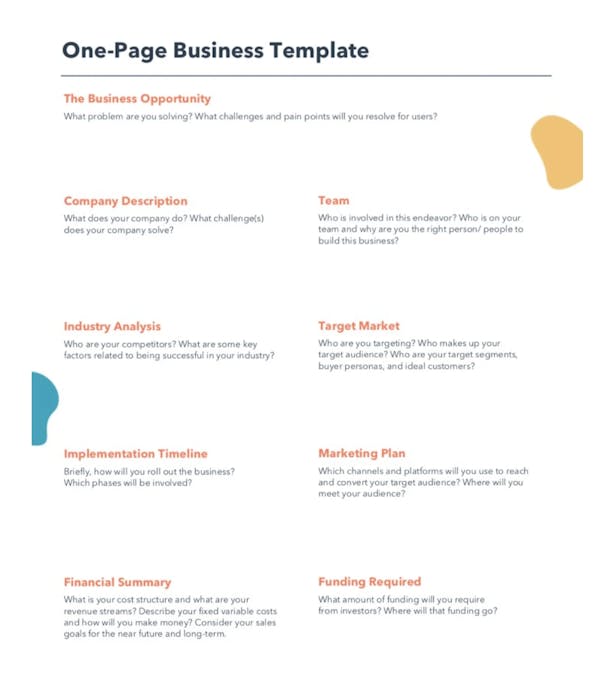
5. Pick a Business Structure
Choosing the right business structure is vital for legal and tax purposes. Common structures include:
- Sole Trader/Proprietorship: Easy to set up, but you're personally liable for business debts.
- Partnership: Shared ownership and responsibilities.
- Company: A separate legal entity providing limited liability protection.
For example, suppose you wish to start a digital marketing agency. In that case, it's better to register as a partnership, as it allows you to combine your and your business partners' skills and share profits and responsibilities.
💡 To learn more about each business type, check out our guide, 4 Types of Business Structures in Australia.
6. Register a Domain Name
Your domain name is your online address, and this is how your customers will reach you.
So, choose a short, memorable, relevant name for your business.
Prices for registering a domain name can vary, but some of the most popular providers are GoDaddy, Namecheap, VentralP, etc.
You can also visit the Business.gov.au website, check your eligibility, and register.
Most businesses use .com.au to indicate they're based in Australia, and customers also prefer this.
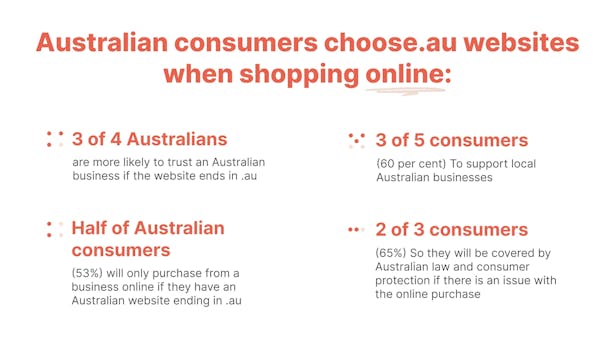
For a .com.au or .net.au domain, you must be a commercial entity with an Australian Company Number (ACN) or Australian Business Number (ABN).
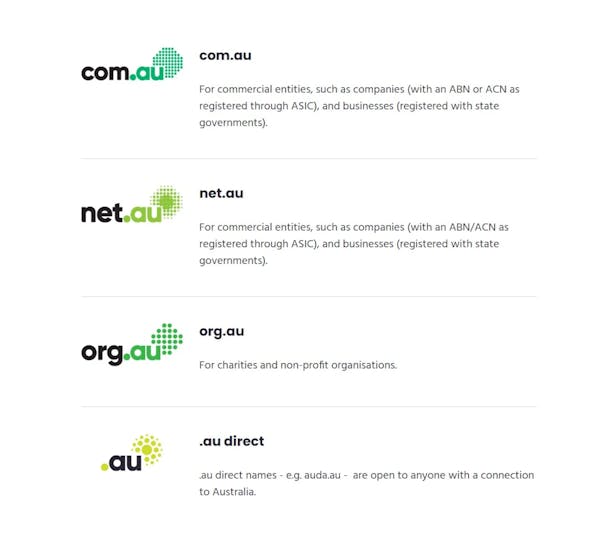
7. Build Your Website or Online Store
Your website is your business's first impression. Create a user-friendly interface using WordPress, Shopify, Squarespace, or another platform of your choice.
Prioritize clean design, easy navigation, and content optimized for search engines (SEO).
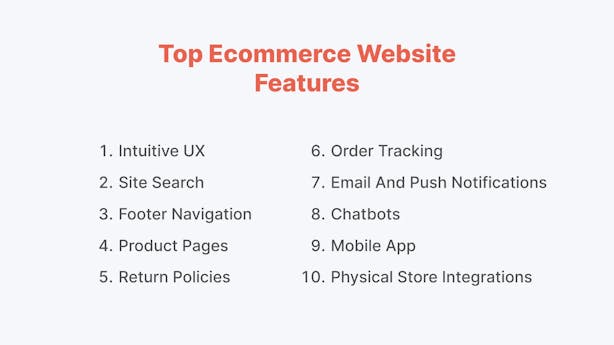
For example, if you sell handmade soap, consider Shopify for your online store. Ensure your site is:
- Mobile-friendly
- Showcases high-quality product images and
- Features a streamlined checkout process.
These elements enhance user experience and contribute to increased sales.
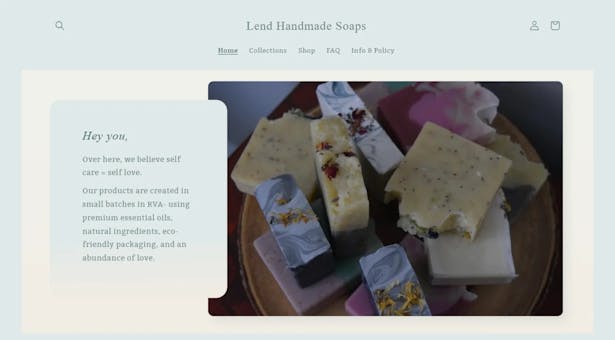
📌Extra Tip
If you collect and store your customers' personal information, you must follow privacy laws, which specify how businesses should manage personal data, particularly for direct marketing purposes.
To ensure compliance with all legal requirements for online business, visit the Legal Essentials for Business page for all the up-to-date information you may need.
8. Market and Grow
Marketing is essential for driving traffic to your site and growing your business. You can use various strategies:
- Organic Search: Implementing SEO best practices enhances your website's visibility in search engine results, driving organic traffic.
- Paid Search: Use Google Ads to target specific keywords relevant to your business, attracting potential customers actively searching for your products or services.
- Social Media: Engage with your audience on platforms like Instagram, Facebook, and TikTok by sharing valuable content, interacting with followers, and running targeted advertising campaigns to reach potential customers.
- Email Marketing: Build a subscriber list of interested individuals and send regular newsletters containing updates, promotions, and valuable content to nurture customer relationships and encourage repeat purchases.
- Online Reviews: Encourage satisfied customers to leave positive reviews on platforms like Google My Business, Yelp, or Trustpilot. Positive reviews build trust with potential customers and improve your website's credibility and search engine ranking.
📌 Extra Tip
If you're on a budget and can't splurge on influencer campaigns, there is also a way to build your online presence.
For example, It's not just about letting your product speak for itself; you can get customers to promote your brand by adding free branded merchandise to their orders.
Consider items like:
- Keychains
- Water bottles
- Tote bags
- Pens
This approach is especially useful if your audience is active and social. For instance, if you sell fitness apparel, include a free branded water bottle with every purchase.
Customers will likely bring the water bottle to the gym, increasing your brand's visibility in a place frequented by your target market.
Key Considerations When Starting an Online Business
🔸 Find the Right Fit: Research your market to make sure people want what you plan to sell.
🔸 Follow Your Passions: Pick something you love doing to keep yourself motivated.
🔸 Count Your Coins: Figure out how much money you'll need to get started and keep things running.
🔸 Play by the Rules: Ensure that you do everything legally, such as getting the right licenses and paying taxes.
🔸 Plan Your Business: Decide how you'll make money, whether selling products, offering services, or showing ads.
🔸 Spread the Word: Develop a plan to promote your business, such as using social media and creating cool content.
🔸 Think About Growth: Consider how your business can get bigger over time and handle more customers.
🔸 Balance Your Life: Your business should not take over your whole life. Make time for yourself and your family.
How Can Anna Help You With Your Online Business?
ANNA is your go-to partner for online business success:
⚡ Effortless Setup: With ANNA One, you can quickly register your Australian company and open a business bank account all in one go. Plus, we cover the registration costs so you can get started hassle-free.
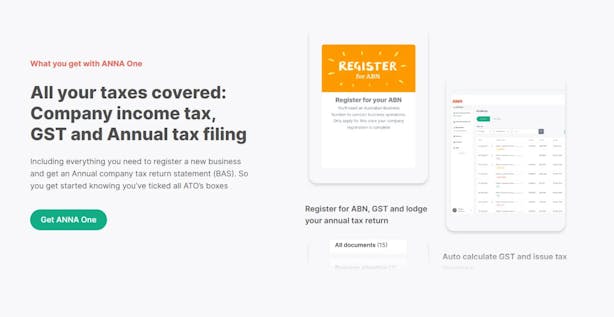
⚡ Comprehensive Support: From managing bookkeeping and invoicing to handling GST and company taxes, ANNA's suite of tools has got you covered. Say goodbye to worrying about tax and accounting tasks.
Also, get rid of unnecessary paper receipts! Just take a picture, and we will categorize it automatically.
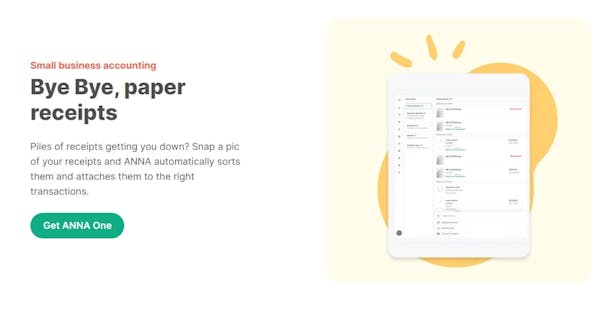
⚡Financial Freedom: ANNA provides personalized tax calendars to ensure you never miss a deadline and expert support from our friendly team, 24/7!
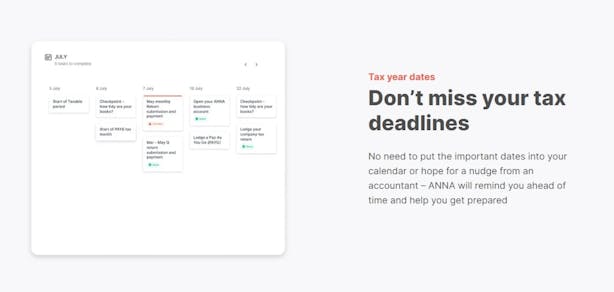
Ready to take your online business to the next level?
Sign up and explore our smart business solutions today!
FAQ
What Legal Issues Should I Know When Starting An Online Business In Australia?
- Apply for an Australian Business Number (ABN).
- Obtain any necessary permits or licenses.
- Follow consumer protection laws.
- Comply with privacy regulations.
Do I Need To Charge GST on My Products?
If your business has a turnover of $75,000 or more, you need to register for GST and charge it on your sales.
What Are The Consumer Protection Laws I Need To Follow?
You must comply with Australian Consumer Law, which includes providing accurate product descriptions, honoring warranties, and ensuring refunds and returns are handled properly.

